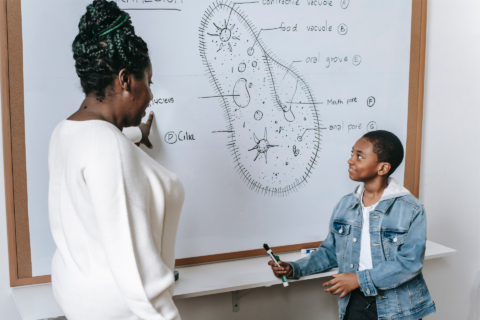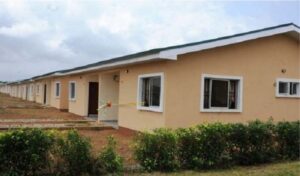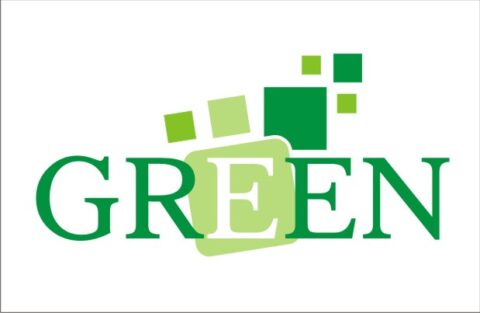The Background
Programme Focus
Economic Governance and Advancement.
Target Areas
Anti-Corruption, Natural Resource Governance and Public Service Delivery.
Programme Demography
Children, Youths and Young Adults [Generation X – Z].
The Need The Programme Addresses
Based on our vision and carefully engaged research analysis, we understand that there is an on-going fundamental Economic Governance and Advancement problem in Nigeria and this bothers heavily on the relationship between the citizens, governance and economic growth (and development).
Economic development is an inherently political process that challenges vested interests; particularly those bestowed with governance responsibility. Once vested interests can be surmounted, then economic governance and advancement will take root, the nation will grow and experience palpable developmental fruits. Resultantly, Africa in general and Nigeria in particular will leap forward and upward. Our solution is thus based on our understanding of the following hypothesis:
- The fundamental obstacles to promoting inclusive economic growth are primarily political in nature and not due to a lack of technical expertise or knowledge about what needs to be done or resources;
- Dependence on primary commodities provides scope for elites to enrich themselves without needing to implement reforms that improve the long-term productive capacity of the economy;
- Patronage politics distorts the economy and diverts public investment away from more productive sectors. Thus, inertia becomes more politically safer than reform; and this breeds an acute lack of trust between the government and the private sector on the one hand, and the government and the citizens on the other; and
- Politically-connected economic elites in the private sector have increasingly established monopolies e.g. in the manufacturing, production, fuel, transport, food and construction sectors forcing out or intimidating smaller players.
Governance work remains important in its own right; but many staple governance programmes contribute only infinitesimally to economic development. But the governance agenda could focus more on economic transformation; on how it links to political change; and on the practical implications for governance work by the transformation of the minds of the people who run the apparatus, systems and institutions of governance. Institutions of economic governance are created by the citizens, managed by the citizens and sustained by the citizens. The moral as well as political will and rectitude to create enduring institutions is lacking because of years of negative institutionalisation and decadence. The NEGAP aims to correct this ill, one man, one idea, one institution of governance, one building block of the nation and one change at a time.
Nigerians need to be aware of the power of their moral will, political intelligence and civic participation in changing our national narrative so they can take back leadership from the corrupt and political elite. But to do this successfully and not repeat the mistakes of the last 60 years+ post-independence, there needs to be a strategic mind re-engineering process engaged with precision and clarity that will drill down from the children in primary schools through the Generation Z, Generation Y and terminating at the Generation X. This is because these groups of young Nigerian Citizens are the next crop of Nigerian leaders. If they are already broken down walls, then the institutions of family (as the smallest unit of society and governance) and economic governance will remain a mammoth decay in Nigeria for generations to come. The next generation of leaders will continue to migrate to foreign countries and our Country may never leave the doldrums of darkness and elitist corruption. We will continue to recycle archaic leadership and true Economic Governance and Advancement will continue to elude us as a nation for eons.
National Economic Governance & Advancement Programme
At Fundacion Exito Ltd./Gte. (“FundELG Africa), we believe that true leaders are those who use themselves as bridges over which they invite their followers to cross; then having facilitated their crossing, joyfully collapse, encouraging them to create their own bridge. This is why our vision is building a National ideology for the next generation, one man, one idea and one change at a time – for a Nigeria that believes in Nigerians built by a Community of Nigerians who believe in Nigeria. Our desire is to prepare the next generation of leaders for Nigeria by ensuring a surgically facilitated ideological revolution and leadership transfer to the best, brightest and most morally astute of the next generation; executed with laser-like precision and clarity.
The “National Economic Governance and Advancement Programme (NEGAP)” is thus a strategic national mind re-engineering process to be engaged with precision and clarity and that will drill through the different facets of our academic institutions, religious organisations and young families (the children in primary schools through the Generation Z, Generation Y and terminating at the Generation X) because these groups of Young Nigerian Citizens are the next crop of Nigerian leaders.
For economic governance and advancement to gain root in Nigeria, we need the right leaders who can build trust with the people; and for leaders to build trust with the people, they require Competence (Capacity), Connection (with the people), Character and Clarity [C4]. The focus of the NEGAP is to build these 4 qualities into Nigeria’s future leaders from the beginning so that true leadership becomes an ingrained character, culture and unconscious way of life in them. We call this the C4 Explosive Objective of the NEGAP.
The NEGAP has Five (5) Thematic Areas which will run in Four (4) different Project Phases networked by a set of centrally themed Activities to help the citizens generally and the next generation of leaders identified under the respective thematic areas particularly address individuality, morality, citizenship, civic participation, governance, electioneering and leadership issues through each national governance transition process.
The NEGAP Thematic Areas
Working with “LIFTS” the Five (5) Thematic Areas of “The NEGAP” will be executed in different project sizes, stages and phases as detailed below:
“There is a need to rekindle our passion for knowledge, excellence and the ethos of our very existence. To re-brand Nigeria; we need to re-brand our youths. How can anybody be a future architect when they are broken down walls?”
– Dr. Oby Ezekwesili, (October 9, 2006)

#TheArchitect® educational Project using Research, Development and Innovation (RDI) aims at developing lasting intellectual capacity and moral rectitude in primary and secondary school students. Under this project, we will engage the students in different categories of reading, writing and digital as well as other academic and mentally engaging/stimulating multi-media competitions with attached rewards to encourage, engender and revive morality and the reading culture in these students; with a view to harnessing ICT as a productive tool rather than a distraction. We will also engage a monitoring and evaluation programme that will work with these students from primary through secondary and tertiary education to ensure that the ingrained capacity derived from their various schools and #TheArchitect® Project is sustained and improved across the different stages of their academic and mental development.
This programme will also entail working with the relevant academic institutions, the parents of the students and their academic handlers to ensure that development spans across their academic and internal family profiles to help the students become cutting edge citizens exceeding the global competitive edge. Ancillary to this project is #TheArchitectVTP (#TheArchitect Volunteer Teachers Project) where we provide volunteer teachers to public secondary schools to support the teachers in meeting the teaching requirements for each term as well as identifying elite students as potential participants in #TheArchitect® educational Project.
Project Justification:
Though there has been an increase in the adult literacy rate over the years (macrotrends statistics ranging from 1991 through 2018), WAEC, NECO and JAMB examinations have recorded mass failures with very high malpractice rates and a resultant reduction in the aggregate JAMB Score. The import of this is that only a minute percentage of our young adults are functionally literate; and with the low level of tertiary enrolment and unemployability ratio of university graduates, this portends a great threat to our national and economic development.
The Goal of “#TheArchitect”:
The Goal is to “systematically, consciously and deliberately” build the youths of today into leaders of tomorrow by ensuring their excellent intellectual development for contribution to nation building ultimately by rekindling their passion for knowledge, excellence and the ethos of our very existence by maximising their formative years in the primary and secondary schools before they proceed to the tertiary institutions.
Education is the most powerful weapon with which you can change the world. Quality education is the key to driving the Nigerian economy and ensuring that it becomes an attractive investment destination; thus education and enlightenment are keys to personal success and national economic development. In addition, students’ life is the most impressionable period of life and during this period, the foundations of excellence in life are laid, so students ought to develop the educational qualities of head and heart which would stand them in good stead for excellence, a bright future and capacity to build a great country.
#TheArchitect2022
#TheArchitect2022, declares a state of emergency in respect of Violence Against Children (VAC). The webinar was focused on crushing violence against children in every form and space where it can be found. Check out our last event, the concept behind it, meet the speakers & moderators, and view the highlights.
“This world demands the qualities of youth: not a time of life but a state of mind, a temper of the will, a quality of imagination, a predominance of courage over timidity, of the appetite for adventure over the life of ease”
– Robert Kennedy

Under this programme, we would strategically engage and work in partnership with the National Universities Commission (NUC), the various tertiary institutions and respective sectors and industries in the Nigerian economy to research into and provide solutions to ensure that the tertiary education and institutional development of undergraduate and graduate students meet the recurrent professional, intellectual and strategic needs of the various sectors of the economy to satisfy the needs of employability, national development and nation-building.
Our strategy would include without limitation, policy and legislative advocacy for curriculum change & support where necessary, and harnessing partnerships with other local and international organisations; while also utilising Internships, Externships, Academic Exchange Programmes, and Specialised “Temp-Employment” schemes, to evolve a synergy between these students and their respective tertiary institutions, the public and private sector organisations, captains of industries and private sector industry drivers, global leaders and international institutions to create a direct mentorship-learning relationship which gives the students a foretaste of the global labour environment, employment, business, labour, family and leadership requirements and prepares them for the next stage of their lives as individuals.
Project 6® is a programme focused on mind re-engineering, character re-shaping and leadership development in youths and young adults. The programme targets undergraduates, fresh graduates and post-graduates and is aimed at developing a values driven, highly skilled and employable labour force by ensuring functional professional capacity building, creativity, critical thinking and value orientation towards national development. The Project 6® Project is 3-Pronged viz:
- #Project6iX Mentorship (Undergraduates);
- #iCreateTheFuture (Undergraduates); and
- The #CiNCEE Project (Young Graduates, Post-Graduates & Young Professionals) – The Continuous Integration & National Citizenship Engagement & Education (CiNCEE) Project.
Justification:
Undergraduates, Young Graduates and Professionals play significant roles in the successful development of any nation. They develop the nation by improving themselves, their skills and their knowledge of the country in respective and unique developmental sectors, thus making up the Labour and Leadership forces of the Nation. They are pillars of the future society – the future citizens, who become the “Nation’s protectors and philosophers”. Protectors (the Labour Force) protect the nation. Philosophers (the Leadership Force) guide the nation. However, proven statistics (as of the year 2021) reveal that over 60% of students admitted into Nigerian universities are not admitted on merit and over 80% of Nigerian graduates are unemployable thus evidencing a lack of adequate capacity to lead or guide the economy in the future.
The Goal of “Project 6”:
The overall goal is to ingrain in the young adult a state of mind, a temper of the will, a quality of imagination, a predominance of courage over timidity, of the appetite for adventure over the life of ease and thus help them gravitate towards our collective national ethos. It is also geared at creating a national economy that provides better opportunities to young graduates.
Proposed Project 6 Architectural Design
Browse through our proposed architectural designs for “Project 6” and watch the video presentation.
“A man cannot leave a better legacy to the world than a well – educated family”
– Thomas Scott

Living eXcellence (LeX®) offers Young Families and Couples, Retreats and developmental programmes focused on enhancing values re-orientation across variegated but synchronised economic sectors with a view to helping Couples, Families and family members deal strategically with issues facing modern families, improve their understanding of their children, enhance their skills in their respective capacities in raising healthy families and thus build stronger family bonds in building a stronger National bond and Unity.
Living eXcellence (LeX®) is 2-Pronged, viz:
- Living eXcellence (LeX®) Retreats (#LeXRetreats); and
- Living eXcellence (LeX®) Families (#LexFamiliies).
Justification:
The dysfunction in the family unit has affected the Nigerian nation adversely, especially the children and young adults; and by extension their generations. The very high divorce rate in the country is attributable to western influence on families, greed and the negative financial and socio-cultural impacts of Nigeria’s dwindling economy. To salvage the next generation, there is thus the urgent need to re-engineer the institution of marriage and reintegrate the family unit in Nigeria utilizing palpable practical methods and solutions.
The Family is the building block of society and its re-engineering can ultimately engender societal rejuvenation and reinvention. The role of the family in the society is same as its basic structural component – the people. Every society is built by people with different functions in order to make it survive, from public workers to educators and religious clergy; and these people all evolve from families – from birth to adulthood and research has shown that why, who and what a child becomes, is mainly determined from the family. The Family thus plays the most important role in the development, education, achievement and overall behaviour of children and young people; hence families are crucial partners in promoting positive social skills, economic development and governance. Thus the role of the family becomes very crucial as the future of the child and young person, and ultimately the nation depends on that role. To create the future we desire therefore, the family must be sufficiently equipped and re-engineered to birth that foundation.
The Goal of “Living eXcellence”:
The Goal is to help facilitate better knowledge and understanding for families and thus help the growth and development of the Nigerian nation by leaving a legacy of excellence and stronger families.
“LIVE” is an acronym for “Leadership-Integrity-Vision-Economic Enterprise & Development” and “LEAD” is an acronym for “Live Everyday to Actualise your Dreams”.
“Failure to settle the problems of land distribution and housing in the world’s cities threatens not only . . . the developing world — it also threatens world stability”
– Charles Abrams
 Under this FundELG Africa® long term affordable housing project, we would work with the Federal Mortgage Bank of Nigeria (FMBN), Primary Mortgage Institutions (PMIs) and the National Housing Fund (NHF) as well as in partnership with the Federal Government and private sector institutions and Agencies to leverage public and legislative advocacy, policy formulation and implementation to support and ensure affordable housing for poor families as a strategic economic tool and catalyst for social change and development.
Under this FundELG Africa® long term affordable housing project, we would work with the Federal Mortgage Bank of Nigeria (FMBN), Primary Mortgage Institutions (PMIs) and the National Housing Fund (NHF) as well as in partnership with the Federal Government and private sector institutions and Agencies to leverage public and legislative advocacy, policy formulation and implementation to support and ensure affordable housing for poor families as a strategic economic tool and catalyst for social change and development.
Justification:
The economic realities in any nation determine to a degree the rate of crime, criminality and value degradation of its citizens. The role of affordable housing in creating jobs and stimulating economic growth, social and civic development cannot be over emphasised. Though a component goal of affordable housing is to lower housing costs for low- and moderate-income families; research by the Center for Housing Policy (CHP) shows that affordable housing development also drives economic, social infrastructure and civic development.
The research review shows that when housing and associated costs are improved, families have more income to support their personal and economic development; and as a result, crime, criminality and social vices are reduced; because based on their success on housing issues, indigenous and poor families, groups and individuals find certain comfort and the peace of mind to apply their skills in positive civic engagement and national development.
The Goal of “ZOE│ZERA”:
Our Goal is to settle housing problems for indigent families so as to help them engage their minds more productively in national development and the achievement of the goals of our National ethos.
“We are whoever we are, from wherever we are from and are wherever we find ourselves, fundamentally because we are first, Nigerians. Nigeria pre-dates everyone of us and yet Nigeria is us, as we are Nigerians. What Nigeria becomes is ultimately what we become as Individuals and as families. Therefore, we must consciously, pragmatically and deliberately create the Nigeria of our Dreams and the future of our Children by who and what we become Individually and Collectively by #LivingALegacy.”
– Dominic E. Obozuwa

#TheGreenCampaign® is a National Re-Birth campaign comprising advocacy and intervention campaigns aimed to re-sensitise Nigerians individually and collectively, locally and internationally as one Nation under God towards maximising, protecting and celebrating our National Identity irrespective of our profession, location, state, tribe, locality, or religious affiliation. #TheGreenCampaign is not a Project, but a generic Campaign which also serves to create awareness for and promote the NEGAP as well as other FundELG Africa Programmes globally. We would work at encouraging national, collective and individual action, civic duty and responsibility through a carefully engineered “Thought | Action | Impact” MAP via strategic local and international campaigns spanning the 36 states of the Federation, the FCT, Canada, the United Kingdom, the United States of America and other Countries where Nigerians may be found.
Think | Act | Impact
The Campaign is a message of Hope, Faith and Courage that like Green leaves and growing fresh grass, with our natural inclination to growth and development as citizens, WE CAN take the energy and challenges of our environment as the plants take the energy of the sunlight and WE CAN convert these challenges into Wealth, Development, Productivity, Change, Hope, Re-Birth and Renewal for our Nation; and the common wealth of our Nation will be maximised for our collective benefits as we individually grow to Greatness – a Nation built for Nigerians by a Community of Nigerians who believe in Nigeria.
#TheGreenCampaign message is simple: Think GREATNESS | Act BOLDLY | Impact CHANGE
#TheGreenCampaign’s current Advocacy Activities include the following:
- #StopAtRed: an Annual October 24/UN Day SDGs Road Traffic Campaign;
- #iAmSanta: an Annual Yuletide Support Campaign for Indigents;
- The Nigerians in Diaspora Campaign: a Nigerians in Diaspora community Civic participation Campaign;
- #iAmChange: an Annual October 1/Independence Day Citizenship & Behavioural Change Campaign;
- #iVoteNG: a Voters’ sensitisation and participation Campaign;
- #Envision2030: a #Transcendence360° SDGs 10 years (a decade of massive action) response Campaign;
- #Overcoming2Geda: a Covid-19 intervention response Campaign;
- #AdoptAFamily: a Family support response Campaign; and
- #TheGreenFinger: a National Heritage, Civic Responsibility & Elections awareness Campaign utilising a plethora of Art Forms and strategies.

NEGAP Projects Matrix
The NEGAP Projects run based on a consecutive cum balanced Matrix Projects and Organisational structure we call “The NEGAP Projects Matrix (The NPM)”. The NPM is the representation of the operational, functional, cultural, social and institutional environment in which the respective NEGAP Projects would be developed in the short medium to long term. It refers to the communication, functionality, connection, engagement and inter-relationship of the different Projects. Thus in working with FundELG Africa and understanding the NEGAP, it is imperative to see and spin through the inter-connectedness of the Projects as they crisscross and we work across Project Teams as an Organisation.
The NPM Structure also ensures that the Board, Management, Departments, Staff and Volunteers communicate and collaborate easily and effectively across Teams, Projects, roles as well as functions; and report to multiple managers overseeing several aspects of a project. This ensures a more dynamic than functional approach and allows projects and teams’ information and process exchange across boundaries which enhances an increase in knowledge, process engineering and excellent Project execution. This enriches Team capacity maximally and helps us meet the overall objectives of the NEGAP as well as the Fundacion Exito Vision. We basically say, “instead of thinking outside of the box, realise that THERE IS NO BOX!”
NEGAP Projects Quadrant
The NEGAP Projects Quadrant (The NPQ) shows the 4 critical and distinct Projects within the NEGAP connected by a central theme – #TheGreenCampaign. A close look at The NPQ would reveal a careful yet adroit flow from Project to Project even within a balanced Projects and Organisational Matrix operations. The idea is basically an overview of a transition of Projects in order of executional progression and mission priority in line with corporate vision. Each The NPQ Quadrant is a critical component of what makes up the NEGAP – meaning none is complete without any of the others, no matter how excellent in execution the others have been. Each of the NPQ components also represent the critical pillars, social structures and projects segmentation of the NEGAP in view of supporting the country in attaining national economic governance and advancement freedom, viz the youths, the home and institutions of governance. It represents our Guide to vision equilibrium.

Our Programmes Strategy
Leveraging the NPM, NPQ, strategic partnerships and collaborations with local and international private sector organisations, public sector agencies, governance institutions, multinationals (MNCs), multilaterals and well-meaning individuals we would work to engineer, brand, finance and execute our various programmes to attain expected outcomes.
The private sector drives the economic prosperity of any nation; and thus our strategy is hinged on the concept of Creating Shared Value (“CSV”); which refers to the idea that ‘individuals, organisations, and companies must take the lead to cause change by bringing business and society back together’.
Our Programme Profile is further encapsulated in our national rebirth project template (The National Rebirth Project Document), codenamed: “The BluePrint 2050® … Behold Grace, Greatness & Glory”.
The Strategy vs Civic Responsibility and Citizenship Connection
We operate the “Theory of Évolvere (Latin for “Evolving” – meaning Continuous Change & Improvement)” which is to the effect that: “IF well-informed and connected citizens are able to increase their capacity, resources, network as well as participation in decision-making processes and governance structures in a continuum; economic governance processes as well as national advancement and integration mechanisms are strengthened and function more effectively in the best interest of the society and the next generation in the short, medium to long term. THEN this would contribute to making for a more integrated, more equitable and ultimately more democratic, prosperous and influential country and people.
Our strategy is thus three-pronged, viz:
- Citizenship empowerment through capacity building and enterprise support and development for economic development;
- Strengthening both democratic institutions and structures for sustained, trans-generational and transcending institutionalisation; and
- Facilitating civic participation in governance and decision-making for service leadership and true nation-building.
The NEGAP as a result focuses on Economic Governance and Advancement in the following sequential order:
- Get the identified citizens well informed and help increase their capacity for participation in decision-making processes as well as enhancing the efficiency of governance institutions and structures;
- promote economic empowerment and integration within Nigeria (and subsequently West Africa) and the responsible management of natural resources; which will help,
- put Nigerian Citizens at the forefront of the economic activities relevant to their respective environments; and which will in turn,
- create opportunities for economic improvement for the citizens in particular and the Nation in general (especially with respect to governance discipline and accountability, equitable tax systems and accountable investments of tax revenues for the relevant Government (Governance) institutions and structures).
The end Goal will be the ultimate strengthening of our democratic institutions and structures by a transparent, efficient and active civic participation in decision making which will ultimately evolve a citizenry focused on inclusive democratic governance and our collective prosperity as a nation.
